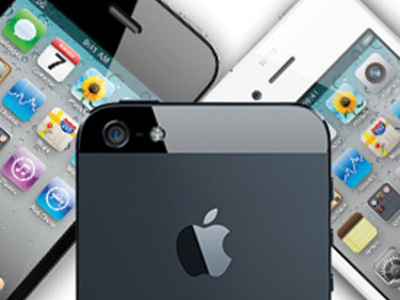Apple Sues Qualcomm For $1 Billion
Apple sued Qualcomm in a San Diego federal court for $1 billion for allegedly charging unfair royalties for technologies used in the iPhone.
The suit came shortly after the Federal Trade Commission (FTC) filed a case accusing Qualcomm of monopolistic practices. According to the FTC, the manufacturer used the ubiquity of its products to extort smartphone-makers and prevent any potential competitors from threatening its business. Qualcomm said the FTC "still lacked basic information about the industry and was instead relying on inaccurate information and presumptions."
But now Apple has lent support to the FTC's claims. As the company said in a statement to CNBC:
Qualcomm built its business on older, legacy, standards but reinforces its dominance through exclusionary tactics and excessive royalties. Despite being just one of over a dozen companies who contributed to basic cellular standards, Qualcomm insists on charging Apple at least five times more in payments than all the other cellular patent licensors we have agreements with combined. [...] To protect this business scheme Qualcomm has taken increasingly radical steps, most recently withholding nearly $1B in payments from Apple as retaliation for responding truthfully to law enforcement agencies investigating them.
At issue is the popularity of Qualcomm's baseband processors--components used to control any connections to wireless networks--in mobile phones. One estimate said in February 2016 that Qualcomm's components represented 65% of the LTE baseband market. None of its competitors even approach that level of prominence (Samsung is the only one that even reaches the double digits) and that puts Qualcomm in a position of considerable leverage.
Qualcomm executive vice president and general counsel Dan Rosenberg responded to Apple's claims:
While we are still in the process of reviewing the complaint in detail, it is quite clear that Apple's claims are baseless. Apple has intentionally mischaracterized our agreements and negotiations, as well as the enormity and value of the technology we have invented, contributed and shared with all mobile device makers through our licensing program. Apple has been actively encouraging regulatory attacks on Qualcomm's business in various jurisdictions around the world, as reflected in the recent KFTC decision and FTC complaint, by misrepresenting facts and withholding information. We welcome the opportunity to have these meritless claims heard in court where we will be entitled to full discovery of Apple's practices and a robust examination of the merits.
Get Tom's Hardware's best news and in-depth reviews, straight to your inbox.
Apple did not respond to our request for comment. But it's clear that the company means business--filing a $1 billion suit in a federal court typically indicates some degree of seriousness--and so does the FTC. Once these cases head to court, it will be easier to tell if Qualcomm is a wrongly maligned company whose products happen to be popular or if it truly has negatively affected the smartphone market so it could line its own metaphorical pockets.

Nathaniel Mott is a freelance news and features writer for Tom's Hardware US, covering breaking news, security, and the silliest aspects of the tech industry.
-
a_load_of_barnacles I would care if it wasn't Apple suing, who have there own little secrets they like to brush under the rug...Reply -
Kruelness Let me get this straight... APPLE... is suing, for another company charging excessive royalties?!? Kettle calling the pot black much? That's rich given how much they overcharge for marginally updated devices that honestly aren't innovative or impressive anymore.Reply -
therealduckofdeath The company that sued Samsung for a billion bucks over a bounce effect in the photos gallery is feeling unfairly treated by another company wanting to get paid for actual, useful IP that costs billions to research and develop. The iRony is strong in this one....Reply -
Gam3r01 Irony means nothing to Apple, its just money to them. If they can profit off something they themselves are guilty of, why not?Reply -
Poozle To be fair, Apple doesn't get investigated for this by the govt. and they DON'T charge excessive royalties. What they charge for their produce ina market with a huge amount of competitors is not a monopoly. Now preventing others from succeeding by withholding money IS a problem.Reply -
derekullo What does the scouter say about his irony level?Reply
IT'S OVER 9000!
(Removes his scouter and crushes it) -
hannibal Apple hopes that They can increase prices (again) by this act... so Expect to see more expensive phones in the future!Reply -
nightshadexl We welcome the opportunity to have these meritless claims heard in court where we will be entitled to full discovery of Apple's practices and a robust examination of the merits.Reply
It's sentences like that that make me very happy. I love when someone says "Fine, let's put all the cards on the table". It reminds me of when Nvidia promised to take Intel to court over unfair business practices and not to settle like AMD did. Well, we all know how that turned out, they settled. I bet Apple and Qualcomm settle too before any 'practices' are ever disclosed. It's all rather disappointing when you were expecting a cage match between tech giants and it instead turns out to be preschoolers kicking dirt at each other than shaking hands to make up. -
ohim This from Apple, the inventor of rounded corner rectangle .... oh boy, when will this bully of a company ever stop being a dick ?Reply
